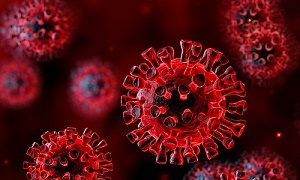A medical study in France suggests even mild cases of coronavirus infection, not requiring hospital treatment, produce antibodies in almost all patients, with the body’s defences against the virus increasing during the weeks of recovery. The Guardian reports that the research, led by a team from the Pasteur Institute, raises hopes that everyone who has had the disease could acquire some degree of immunity, although it is not clear for how long or to what degree.
The question of immunity has become one of the most vexed issues concerning coronavirus, in terms of governments’ public health policies – including the controversial herd immunity route – and in the understanding of the mechanics of the disease, which divides scientists. Early reports had suggested an absence or limited presence of antibodies in some individuals with mild symptoms.
The Guardian says the research, jointly led by Olivier Schwartz, head of the Pasteur Institute’s virus and immunity unit, took samples from more than 160 staff from the CHU Hospital, in Strasbourg, who became infected with COVID-19 early in March after a “super-propagation” event – linked to a five-day prayer and fasting gathering of the evangelical Christian Open Door church in Mulhouse, eastern France.
According to the research report, 160 hospital staff agreed to participate in the study, all having been confirmed as coronavirus cases after initial tests. They were not ill enough to be admitted to hospital. Two separate assay tests were then used to retest the staff to see if they had produced antibodies.
The research noted that the detected antibody response appeared to grow stronger as the participants recovered and that the antibodies appeared effective in combating (or neutralising) the virus.
“The neutralising activity is present much later than the appearance of antibodies and this is encouraging,” Schwartz told the French newspaper Le Monde, adding that the team hoped to continue studying the participants to establish how long the protection would continue.
The study concludes: “For patients with (the related) SARS (coronavirus) antibodies persist for at least two years after symptomatic infection.”
The French report emerged on the same day researchers from the Chinese Academy of Sciences reported that they had isolated and identified a monoclonal antibody from a recovering coronavirus patient, which appeared to show a strong ability to eliminate the virus in the trachea when used as a treatment, and to prevent the viral load from increasing there, when used prophylactically.
Abstract (pre-print)
Background: The serologic response of individuals with mild forms of SARS-CoV-2 infection is poorly characterized.
Methods: Hospital staff who had recovered from mild forms of PCR-confirmed SARS-CoV-2 infection were tested for anti-SARS-CoV-2 antibodies using two assays: a rapid immunodiagnostic test (99.4% specificity) and the S-Flow assay (~99% specificity).The neutralizing activity of the sera was tested with a pseudovirus-based assay.
Results: Of 162 hospital staff who participated in the investigation, 160 reported SARS-CoV- 2 infection that had not required hospital admission and were included in these analyses. The median time from symptom onset to blood sample collection was 24 days (IQR: 21-28, range 13-39). The rapid immunodiagnostic test detected antibodies in 153 (95.6%) of the samples and the S-Flow assay in 159 (99.4%), failing to detect antibodies in one sample collected 18 days after symptom onset (the rapid test did not detect antibodies in that patient). Neutralizing antibodies (NAbs) were detected in 79%, 92% and 98% of samples collected 13-20, 21-27 and 28-41 days after symptom onset, respectively (P=0.02).
Conclusion: Antibodies against SARS-CoV-2 were detected in virtually all hospital staff sampled from 13 days after the onset of COVID-19 symptoms. This finding supports the use of serologic testing for the diagnosis of individuals who have recovered from SARS-CoV-2 infection. The neutralizing activity of the antibodies increased overtime. Future studies will help assess the persistence of the humoral response and its associated neutralization capacity in recovered patients.
Authors
Samira Fafi-Kremer, Timothee Bruel, Yoann Madec, Rebecca Grant, Laura Tondeur, Ludivine Grzelak, Isabelle Staropoli, Francois Anna, Philippe Souque, Catherine Mutter, Nicolas Collongues, Alexandre Bolle, Aurelie Velay, Nicolas Lefebvre, Marie Mielcarek, Nicolas Meyer, David Rey, Pierre Charneau, Bruno Hoen, Jerome De Seze, Olivier Schwartz, Arnaud Fontanet
[link url="https://www.theguardian.com/world/2020/may/27/french-team-finds-mild-coronavirus-infection-does-lead-to-antibodies"]Full report in The Guardian[/link]
[link url="https://www.medrxiv.org/content/10.1101/2020.05.19.20101832v2"]MedRxiv abstract[/link]

